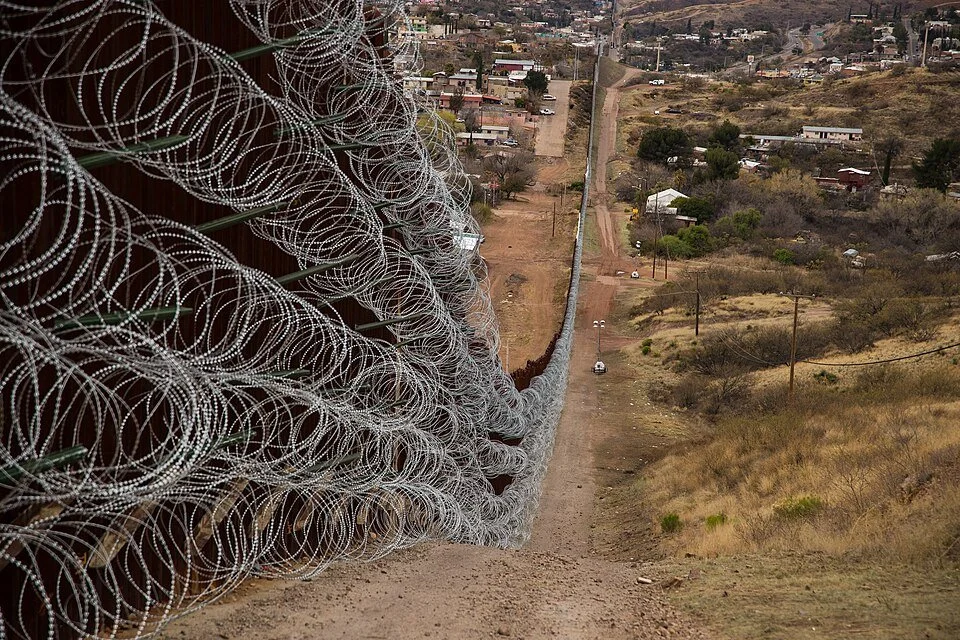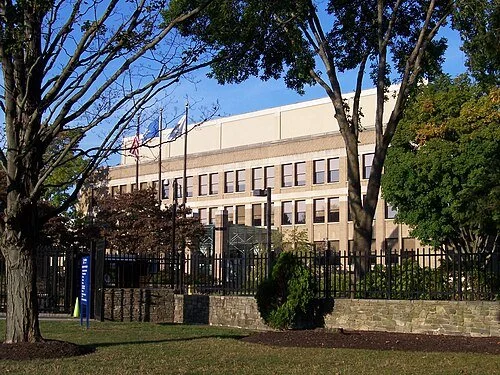Chris Powell: Distinguish among immigrants; Pratt & Whitney’s slow exit
Border between Nogales, Ariz., and Nogales, Mexico.
MANCHESTER, Conn.
Leftist research and social-service groups are working with news organizations to blur the distinction between legal and illegal immigration.
It happened again the other week as Connecticut's Hearst newspapers touted a report from Data Haven and the Connecticut Immigrant Support Network about the contributions of immigrants, legal and illegal alike, to the state's economy.
The report says: “Politics that deter immigration, including those targeted at people who are legally authorized to work in the U.S., will harm the Connecticut economy. In particular, deporting undocumented immigrants, who comprise 3% of Connecticut's total population (about 117,000 people), would potentially wipe out tens of thousands of jobs, given that 87% of these immigrants are working age."
This is triply misleading.
First, the report falsely suggests that there is clamor in Connecticut to expel legal immigrants. To the contrary, Connecticut is happily full of citizens and legal residents of all sorts of foreign ancestry.
Second, the jobs held by illegal immigrants in Connecticut would not necessarily disappear if illegal immigrants disappeared. That's because the labor- participation rate in Connecticut -- the percentage of the adult population in the workforce -- has been declining for decades, from 71 percent in 1991 to 65 percent as of April, according to the U.S. Bureau of Labor Statistics. That is, there is slack in the state's workforce, and while many state residents are not highly skilled, a labor shortage might raise wages and draw unemployed people back into the workforce.
Third, the report holds that, insofar as they are working, legal and illegal immigrants are and should be considered the same.
But they're not the same.
Legal immigrants have been reviewed by immigration authorities for suitability to enter the country -- reviewed in regard to their intentions, behavior, health, ability to support themselves financially, associations, and any past immigration law violations.
But illegal immigrants typically have not been reviewed at all. Some probably have heard that state government in Connecticut obstructs and tries to nullify federal immigration law and provides financial and other benefits to illegal immigrants -- that the state believes that anyone who breaks into the United States illegally and reaches Connecticut should be exempt from immigration law.
That is the big issue here -- not the supposed economic benefits to the state from having a class of unenfranchised serfs working under the table, lowering wages for unskilled labor, but whether everyone entering the United States should be vetted and immigration law enforced or whether the borders should be as open again as they were during the Biden administration.
But in a debate in the state House of Representatives the other day, Democratic Majority Leader Jason Rojas argued that no distinction should be made between legal and illegal immigrants. “We should reject referring to them as illegal," he said.
Journalists covering the immigration issue in Connecticut seem to agree. They rarely put the question of undifferentiated immigration to its advocates -- not even to the governor, members of Congress, and Rojas and other state legislators.
Pratt & Whitney headquarters in East Hartford, Conn.
During the recent strike at Pratt & Whitney, a member of the machinists union wrote to the Waterbury Republican-American complaining that the company has been transferring jet-engine-parts manufacturing work out of Connecticut to a new factory in North Carolina, threatening job security for the company's workers here.
This is actually an old story. Sixty years ago Pratt & Whitney had more than 20,000 employees in Connecticut. Today it has only half as many in the state but 43,000 around the country and worldwide.
Expanding elsewhere has been the company's policy for decades. Part of it is economizing, since labor is usually cheaper and taxes lower outside Connecticut. But the bigger part of it is the politics of being a major military contractor needing to build congressional support throughout the country. Whether a weapons system works well can be less important than which states profit from it.
Loyalty to one's origins doesn't mean much in big business anymore. It doesn't help that state government, ever oblivious, keeps making Connecticut more expensive.
Chris Powell has written about Connecticut government and politics for many years (CPowell@cox.net).

